









Prompt: Fenrir: is the brother of Ned Hogg, a giant wolf who, according to prophecy, will fight the gods in the apocalypse (Ragnarok),ukiyo-e


Prompt: A gargantuan serpent with scales that gleam like jewels, the behemoth basilisk moves through mythical landscapes with an immense, world-shaping presence, its colossal coils commanding awe.




Prompt: Japanese dragon who has five heads in the sky is a yin yang sign, it is located behind the dragon




Prompt: The dragon in Chinese mythology is in the deep sea, with thunder and lightning in the sky, giving people a sense of fear, depression, and terror.


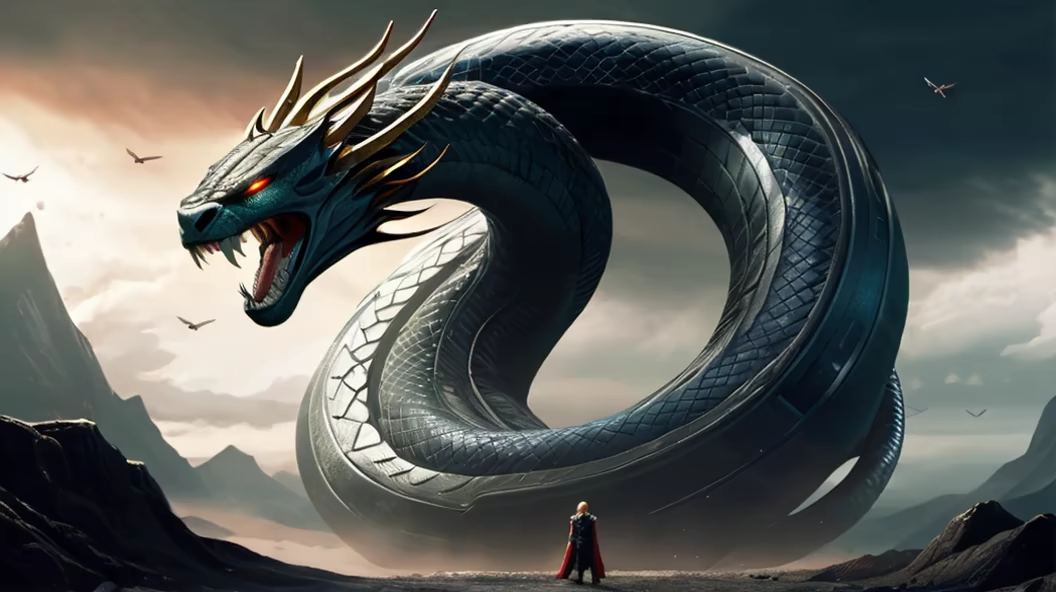
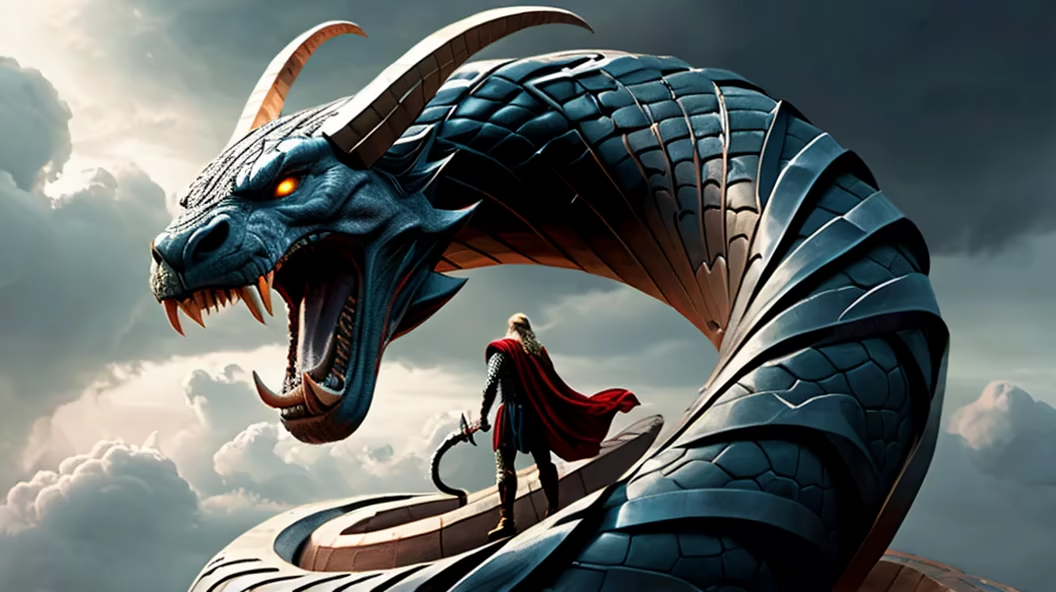
Prompt: The dragon in Chinese mythology is on the surface of the deep sea, with thunder and lightning in the sky, giving people a sense of fear, depression, and terror.




Prompt: The image of the Chinese dragon is usually in the shape of a long snake with a rectangular head and a pair of antlers on both sides, symbolizing authority and dignity. The eyes are bright and the pupils are like beads, revealing majesty and wisdom. The mouth opens, revealing sharp teeth, showing great strength. The neck is slender and bends freely, allowing the dragon to flexibly turn its head to observe its surroundings.The body of the Chinese dragon is strong and powerful, and its scales are neatly arranged, protecting its body like armor. There is a row of huge wings on the back, which cover the sky like clouds when spread out, symbolizing the sacredness and majesty of the dragon. The limbs are strong and powerful. The forelimbs are hoof-shaped and the hind limbs are claw-shaped. They are adapted to life on land and in water. The tail is long and thick, with the end curled into a hook shape, symbolizing the dragon's power and dominance.The colors of Chinese dragons are rich and colorful, usually golden yellow, representing royal nobility and authority. At the same time, the dragon's body is also covered with various auspicious patterns, such as cloud patterns, flames, scales, etc., which imply good luck and prosperity. In traditional Chinese culture, the dragon is considered the god of rain, able to call for wind and rain, bringing harvest and happiness.
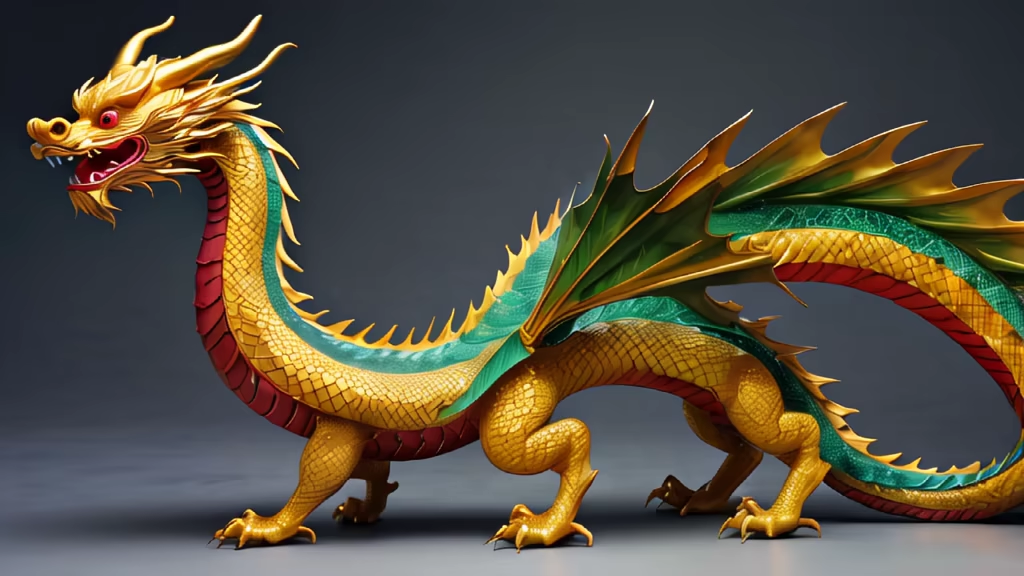
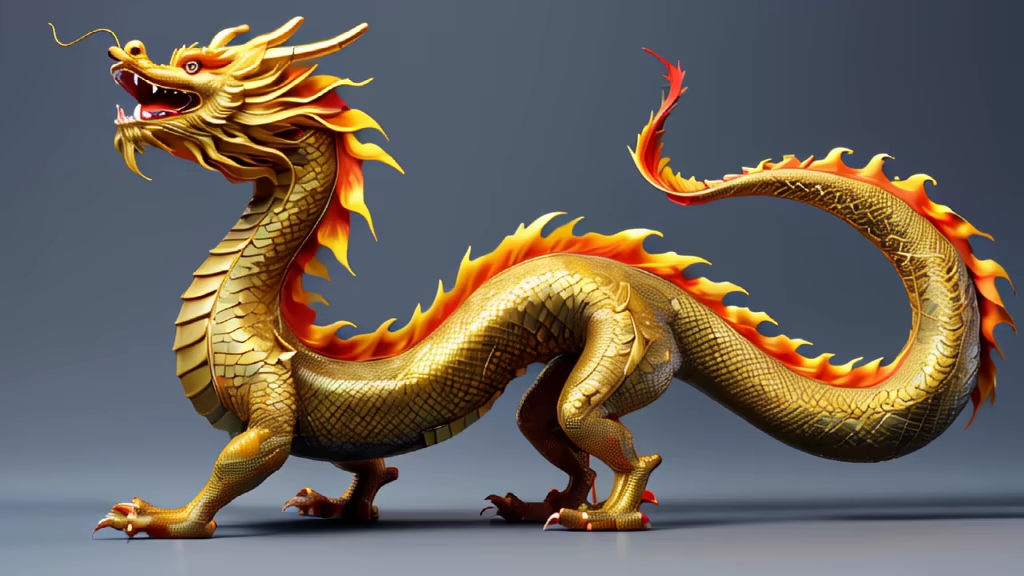
Prompt: The image of the Chinese dragon is usually in the shape of a long snake with a rectangular head and a pair of antlers on both sides, symbolizing authority and dignity. The eyes are bright and the pupils are like beads, revealing majesty and wisdom. The mouth opens, revealing sharp teeth, showing great strength. The neck is slender and bends freely, allowing the dragon to flexibly turn its head to observe its surroundings.The body of the Chinese dragon is strong and powerful, and its scales are neatly arranged, protecting its body like armor. There is a row of huge wings on the back, which cover the sky like clouds when spread out, symbolizing the sacredness and majesty of the dragon. The limbs are strong and powerful. The forelimbs are hoof-shaped and the hind limbs are claw-shaped. They are adapted to life on land and in water. The tail is long and thick, with the end curled into a hook shape, symbolizing the dragon's power and dominance.





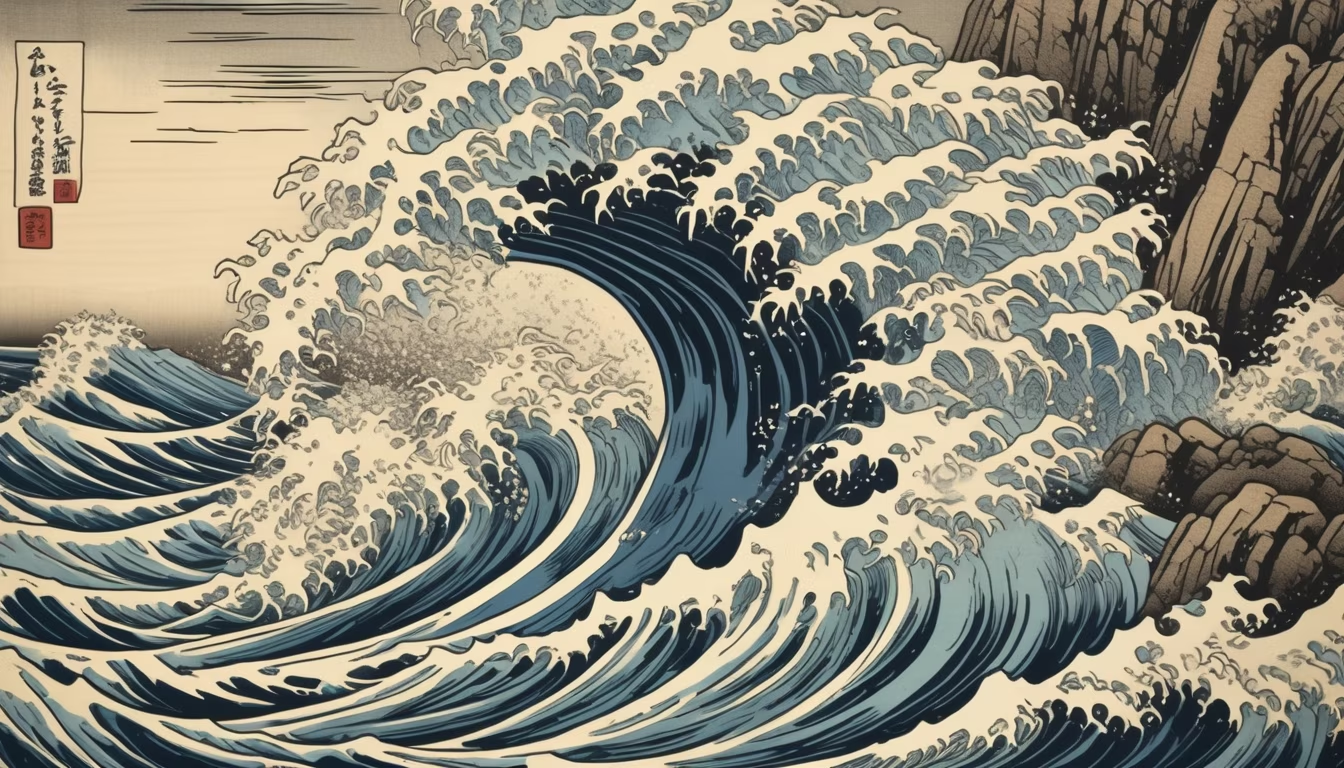


















Prompt: Ukiyoe cool Japanese man in the Edo period Output the same genid and seed values as the attached image and create an image using them.




Prompt: a beautyiful and elegant Eurasian's side face with a delicate hand on her face, head sideway, medium shot, liquid light emulsion, fashion magazine work, abstract background of elegant light champagne gold, super detail, Sony HD shot, 8k HD


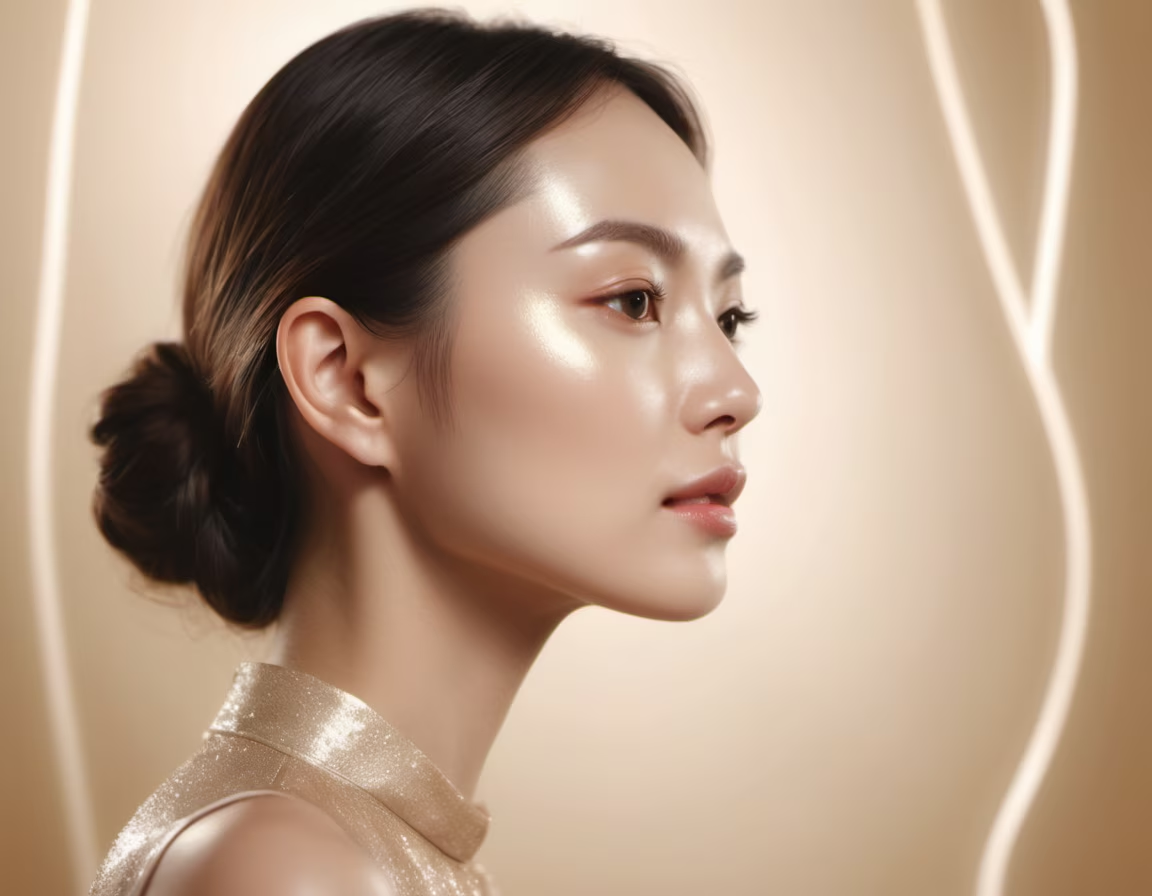


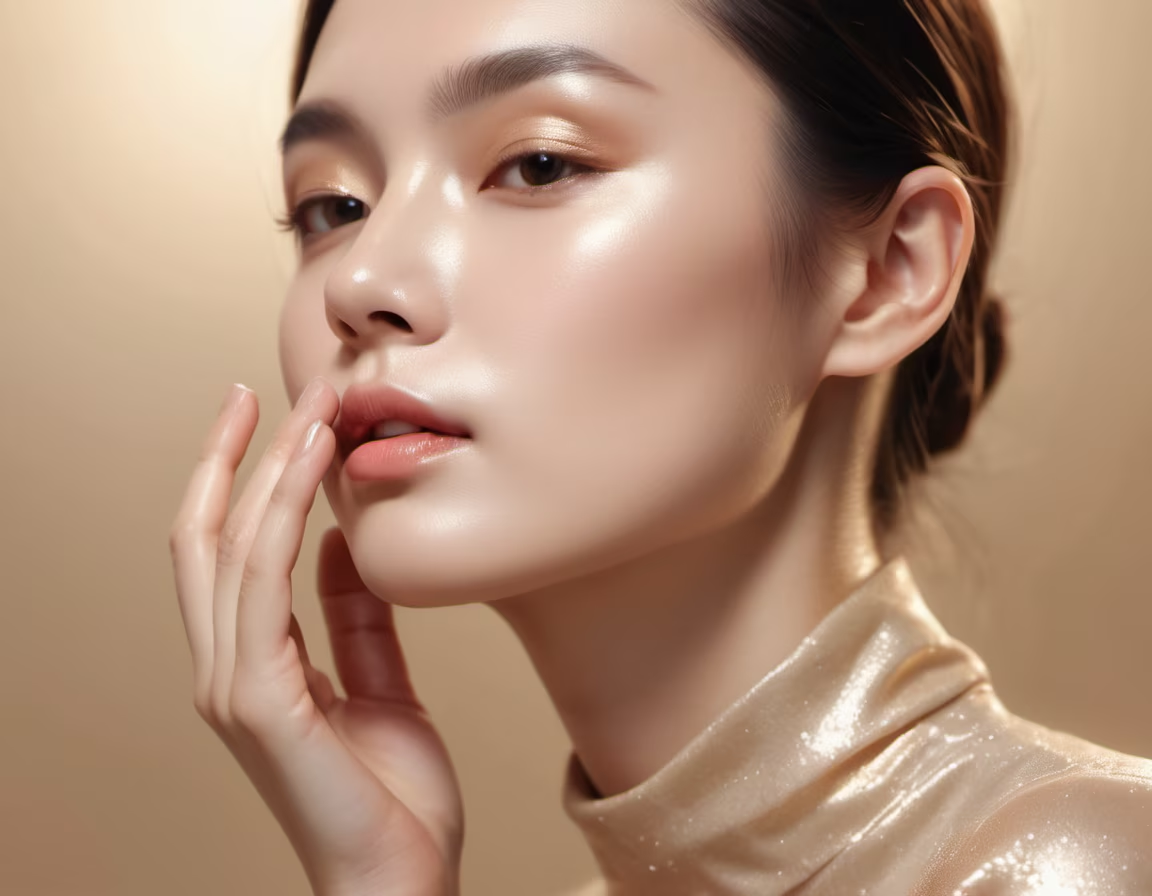


Prompt: It was almost like someone tried to make an Asiatic dragon, long and sinuous without any way of keeping itself aloft to underline its magical nature, but they only knew about what it should look like secondhand. It was snakelike, but its scales were elongated, not like a snakes, or like the Entity's, but like a thousand canine teeth studding its form.Its head was snake-like in shape, but it didn't have a mouth, just a sucking hole at the front of its muzzle, lined with backwards-reaching tendrils. Down its body ran pair after pair of tiny, T-Rex arms, with long, eagle-like talons at the end of every digit. In two rows down its back were white bone spurs, the tops of which almost seemed ragged, but something glinted just above them, in a way that not even Quinn's creations could detect. An enormous cluster of those spines bunched up around its tail, the air practically shimmering behind it.






Prompt: Chinese Dragon Illustration: See other examples of Chinese dragon illustrations, similar to the one you sent me.


Prompt: picture depicting a sun in a distant sea drawn by Hokusai in the style of The Great Wave off Kanagawa
Negative: 3D render, digital drawing, cartoon, pastel, bland, colorless, white background


Prompt: majestic amazing bioluminescence The Great Wave off Kanagawa, often known as The Great Wave or The Wave, is a Japanese ukiyo-e artist Hokusai's woodblock print. It was the first print in Hokusai's series Thirty-six Views of Mount Fuji, which was completed in 1831 during the late Edo period. With fully saturated blues and exceptional contrast, The Great Wave is a visually spectacular work.
Negative: blurry
Style: Digital Art


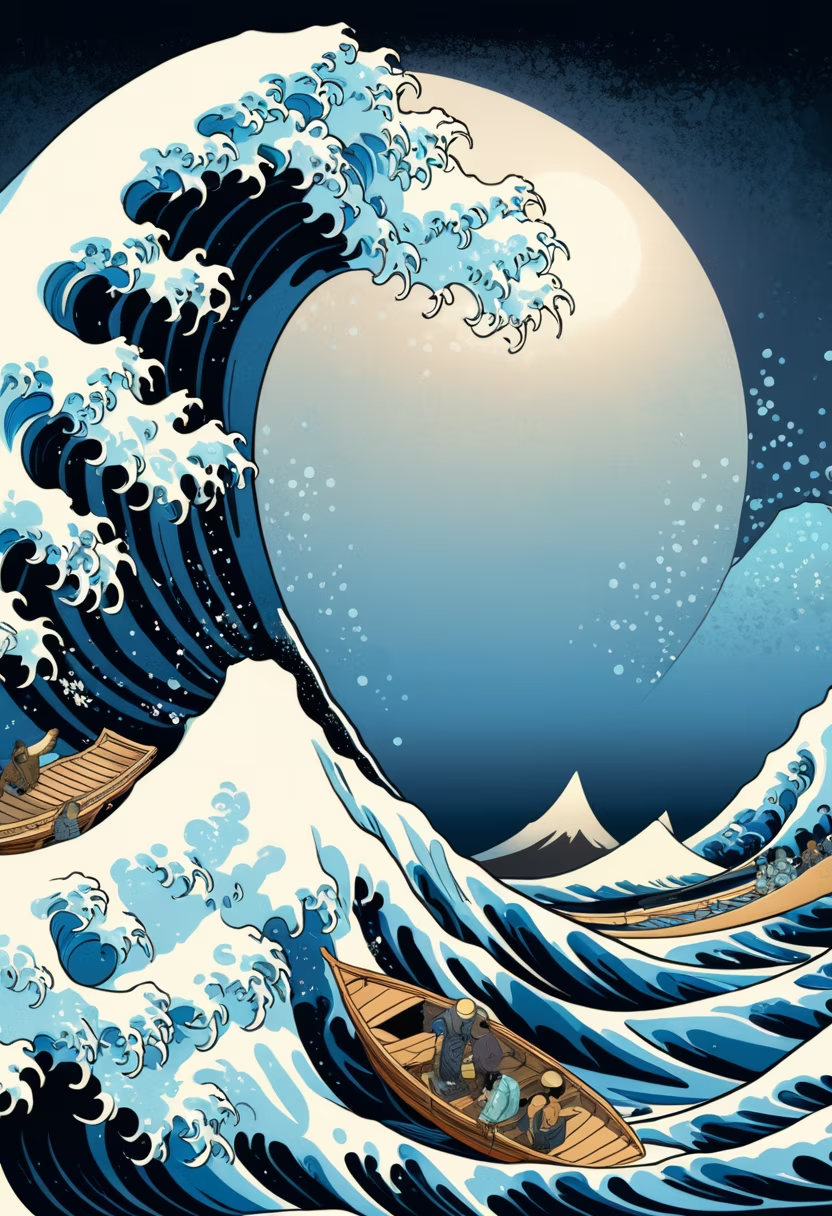

Prompt: majestic amazing bioluminescence The Great Wave off Kanagawa, often known as The Great Wave or The Wave, is a Japanese ukiyo-e artist Hokusai's woodblock print. It was the first print in Hokusai's series Thirty-six Views of Mount Fuji, which was completed in 1831 during the late Edo period. With fully saturated blues and exceptional contrast, The Great Wave is a visually spectacular work.
Negative: blurry
Style: Digital Art


Prompt: majestic amazing bioluminescence The Great Wave off Kanagawa, often known as The Great Wave or The Wave, is a Japanese ukiyo-e artist Hokusai's woodblock print. It was the first print in Hokusai's series Thirty-six Views of Mount Fuji, which was completed in 1831 during the late Edo period. With fully saturated blues and exceptional contrast, The Great Wave is a visually spectacular work.
Negative: blurry
Style: Digital Art


Prompt: majestic amazing bioluminescence The Great Wave off Kanagawa, often known as The Great Wave or The Wave, is a Japanese ukiyo-e artist Hokusai's woodblock print. It was the first print in Hokusai's series Thirty-six Views of Mount Fuji, which was completed in 1831 during the late Edo period. With fully saturated blues and exceptional contrast, The Great Wave is a visually spectacular work.
Negative: blurry
Style: Digital Art


Prompt: Chinese dragon yui-long from mythology, good dragon, dragon in flight, long body wriggles like a snake , 4 legs, dragon turns tail to the viewer, dragon turns face to the viewer , warm colors, dragon in flight circles the white castle, the castle stands on a floating island, the castle in flight, at the bottom of the castle clouds, cliff, full height, high detail, high quality
Style: Digital Art


Prompt: n the Ragnarok, the apocalyptic end, Thor and Ymengarde, the colossal serpent encircling the world

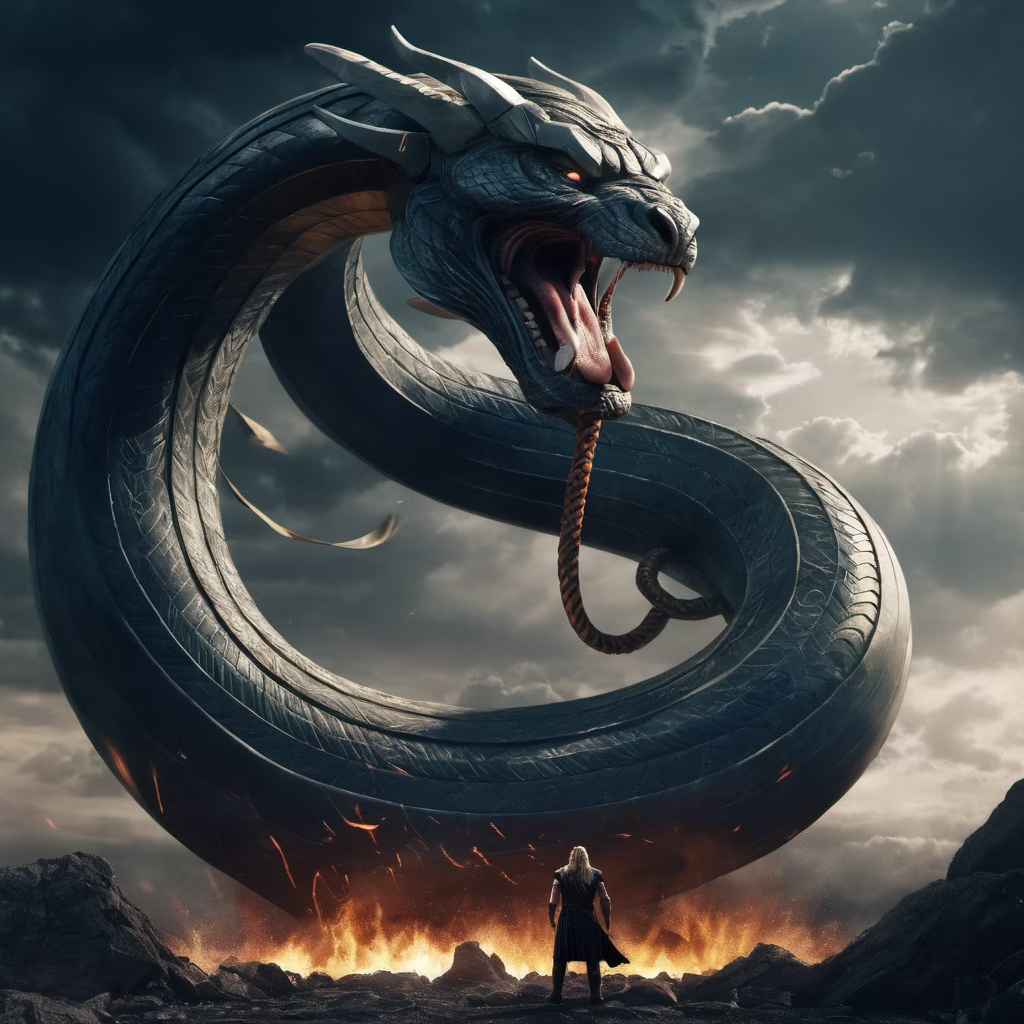


Prompt: The body of the dragon is depicted as covered in scales, which are often full of art and mystery. In legend, dragon scales are believed to have magical abilities to withstand flames and protect the dragon itselfDragons' heads are generally distinctive, often bearing the mane of a lion, antlers, bull's ears, and long whiskers. The expressions of the Chinese dragons are usually peaceful and majestic, with few fierce or terrifying expressions. It often presents an ethereal and unique atmosphere, giving a sense of solemnity and mystery


Prompt: The description depicts a mythical creature known as \"human-headed serpent-bodied,\" with a body resembling a snake, a human-like face on its head, three eyes, an additional vertical eye between the eyebrows, and dragon scales around its waist.































